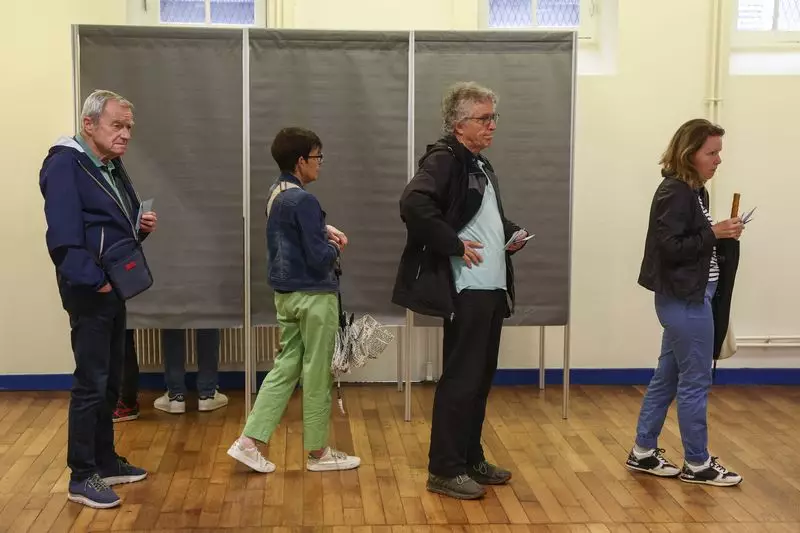French voters recently embarked on a journey to participate in a snap parliamentary election that could potentially lead to the establishment of the country’s first far-right government since World War Two. This decision was prompted by President Emmanuel Macron after his centrist alliance suffered a devastating defeat in European elections at the hands of Marine Le Pen’s National Rally (RN). The RN, a party known for its eurosceptic and anti-immigrant stance, was once considered a pariah but is now inching closer to the seat of power in France.
Polls for the election opened at 0600 GMT and are set to close at 1600 GMT in smaller towns and cities. However, in larger cities, voting will continue until 1800 GMT. The first exit polls for the night and seat projections for the decisive second round, scheduled for a week later, are eagerly awaited. The electoral system in France makes it challenging to accurately predict the distribution of seats in the 577-seat National Assembly. The final outcome of the election is not expected to be known until voting concludes on July 7.
Marine Le Pen expressed confidence in her party’s chances, boldly predicting an absolute majority for the RN. She even went as far as naming her protege, 28-year-old Jordan Bardella, as the potential prime minister. The RN’s platform includes a high-spending economic agenda and a focus on reducing immigration. If the RN does secure an absolute majority, it could spell a period of unprecedented turbulence for French diplomacy. This would likely involve a power struggle between Macron and Bardella as they vie for the right to represent France on the global stage.
In the event of a RN victory, France could undergo a significant geopolitical shift, transforming from a staunch supporter of the European Union to a vocal critic. This change could see France demanding a rebate on its contribution to the EU budget, clashing with Brussels over key appointments within the European Commission, and challenging Macron’s calls for increased EU unity and defense assertiveness.
Uncertainty in Foreign Relations
A victory for the RN would also raise questions about France’s stance on the ongoing Russia-Ukraine conflict. While Le Pen has shown pro-Russian sentiment in the past, the party now claims it would support Ukraine against Russian aggression but with certain limitations. This uncertainty could have far-reaching implications for France’s foreign policy direction.
The Electoral Landscape
Opinion polls currently indicate a lead for the RN, with the New Popular Front, a left-wing coalition, trailing behind. Macron’s centrist alliance is positioned in third place. The electoral process in France makes it difficult to accurately translate popular vote percentages into seats in the National Assembly. The possibility of split votes and unexpected outcomes looms large in this election.
For decades, opposing forces in French politics would unite to block the far-right from gaining power. However, this strategy may not be as effective in the current political climate. The RN’s efforts to present a more moderate image, such as denouncing antisemitism, have led to questions about the party’s true intentions and underlying ideologies.
The snap parliamentary election in France represents a pivotal moment in the country’s political history. The rise of the far-right and the potential implications of a RN victory could have a lasting impact on French and European politics. The outcome of this election will not only shape domestic policies but also determine France’s position on critical international issues. The world watches with bated breath as the French electorate decides the future direction of their nation.

